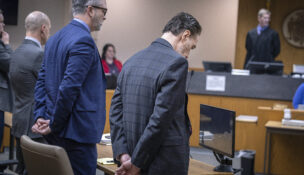Supreme Court nixes unique circumstances
By: dmc-admin//June 25, 2007//
|
What the court held Case: Bowles v. Russell, No. 06-5306. Issue: Can the deadline for filing a notice of appeal be extended for “unique circumstances”? Holding: No. Prior case law permitting late notices of appeal are overruled. |
The “unique circumstances” doctrine, long subject to criticism in the Seventh Circuit, has been overruled by a U.S. Supreme Court decision issued June 14.
Under the doctrine, a party’s failure to make a jurisdictional deadline was not fatal, if the failure was made in reliance on a district court’s order. But where the deadline is “jurisdictional,” such as that for filing a timely notice of appeal, not even reliance on a court order can excuse the late filing.
In 1999, a state court jury in Ohio convicted Keith Bowles of murder. After unsuccessfully challenging his conviction and sentence on direct appeal in state court, he filed a federal habeas corpus petition.
On Sept. 9, 2003, the district court denied Bowles habeas relief, giving Bowles 30 days to file a notice of appeal.
Bowles failed to do so, but on Dec. 12, he moved to reopen the period during which he could file his notice of appeal pursuant to Rule 4(a)(6) of the Federal Rules of Appellate Procedure, which allows district courts to extend the filing period for 14 days from the day the district court grants the order to reopen, provided certain conditions are met.
On Feb. 10, 2004, the District Court granted Bowles’ motion. But rather than extending the time period by 14 days, the court gave Bowles 17 days to file his notice of appeal.
Bowles filed his notice on Feb. 26 — within the 17 days allowed by the court, but after the 14-day period allowed by Rule 4(a)(6) and 28 U.S.C. 2107(c).
The Sixth Circuit held that it lacked jurisdiction and dismissed the appeal. The U.S. Supreme Court granted review, but affirmed in a decision by Justice Clarence Thomas.
Justice David H. Souter dissented, in an opinion joined by Justices John Paul Stevens, Ruth Bader Ginsburg, and Stephen Breyer.
The majority began by citing cases dating back to the 19th century, holding that taking an appeal within the prescribed time is “mandatory and jurisdictional.”
The court also noted the difference between rules promulgated by courts, which are not jurisdictional, and those imposed by statute, which are jurisdictional. Because the deadline is established not only by court rule, but by sec. 2107(c), the court concluded that the deadline was jurisdictional, and could not be extended.
Third, the court noted the different treatment in its own rules for parties seeking certiorari between civil and criminal cases. The 90-day period is the same for both, but in civil cases, it derives from both court rule and statute.
In criminal cases, the time period is only based on court rule, and the court permits that rule to be relaxed. However, the statute-based filing period for civil cases is jurisdictional, and cannot be relaxed.
Although Bowles may be a state prisoner, and the substantive issues criminal ones, his federal court action is technically civil, and thus, is subject to the rules governing civil cases. Accordingly, the court held that his untimely notice of appeal failed to confer jurisdiction on the court of appeals, and was properly dismissed by that court.
Unique Circumstances
The court thus overruled its prior case law allowing exceptions to jurisdictional requirements where “unique circumstances” are present.
The doctrine has its origin in Harris Truck Lines, Inc. v. Cherry Meat Packers, Inc., 371 U.S. 215 (1962), and Thompson v. INS, 375 U.S. 384 (1964), but has not been applied by the Supreme Court since then.
|
Related Article |
||
The court wrote, “We see no compelling reason to resurrect the doctrine from its 40-year slumber,” and overruled the two cases.
The Dissent
Justice Souter dissented, opining, “It is intolerable for the judicial system to treat people this way, and there is not even a technical justification for condoning this bait and switch.”
Souter asserted that jurisdictional rules should be absolute, and not subject to exception, only when they delineate the classes of cases and the persons falling within a court’s authority.
Time limits, by contrast, are more analogous to statutes of limitation, which are routinely tolled for equitable reasons, and which can be waived, Souter noted.
Maintaining that the court has authority to recognize an equitable exception to the 14-day limit, Souter argued that it was appropriate in this case: “Bowles’s counsel probably did not think the order might have been entered on a different day from the day it was signed. He probably just trusted that the date given was correct, and there was nothing unreasonable in so trusting. The other side let the order pass without objection. … This would be a different case if … opposing counsel had flagged the error. But on the actual facts, it was reasonable to rely on a facially plausible date provided by a federal judge.”
Click here for Case Analysis.
David Ziemer can be reached by email.
Legal News
- Former Trump staffer who said to ‘fan the flame’ after 2020 loss hired to lead Wisconsin GOP
- Gov. Evers appoints David Casey to Serve as DOR Secretary
- FBI launches criminal investigation into Key Bridge collapse
- Man charged in slaying after woman’s leg found at Milwaukee-area park
- Minnesota man guilty in fatal stabbing of teen on Wisconsin river, jury finds
- Wisconsin teen sentenced in bonfire explosion that burned at least 17
- Wisconsin man who broke into home, ate victim’s chicken, slept in victim’s bed, receives prison and jail sentences
- Judge refuses to dismiss Hunter Biden’s gun case
- House passes reauthorization of key US surveillance program after days of upheaval over changes
- Milwaukee Police officer traveling to Georgia training retires before facing discipline
- Evers to ask legislature to approve largest increase in state support for UW System in two decades
- 7th Circuit Court of Appeals proposes new rules
WLJ People
- Power 30 Personal Injury Attorneys – Russell Nicolet
- Power 30 Personal Injury Attorneys – Benjamin Nicolet
- Power 30 Personal Injury Attorneys – Dustin T. Woehl
- Power 30 Personal Injury Attorneys – Katherine Metzger
- Power 30 Personal Injury Attorneys – Joseph Ryan
- Power 30 Personal Injury Attorneys – James M. Ryan
- Power 30 Personal Injury Attorneys – Dana Wachs
- Power 30 Personal Injury Attorneys – Mark L. Thomsen
- Power 30 Personal Injury Attorneys – Matthew Lein
- Power 30 Personal Injury Attorneys – Jeffrey A. Pitman
- Power 30 Personal Injury Attorneys – William Pemberton
- Power 30 Personal Injury Attorneys – Howard S. Sicula











